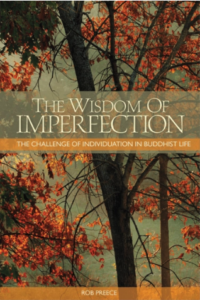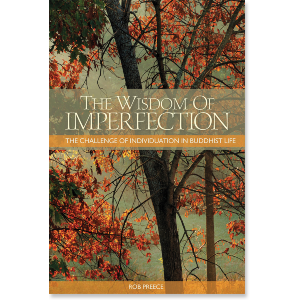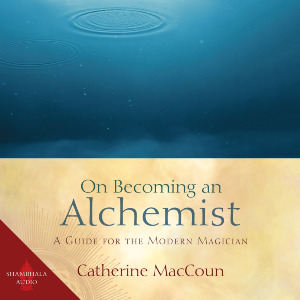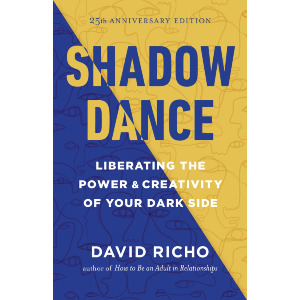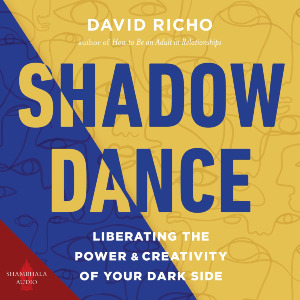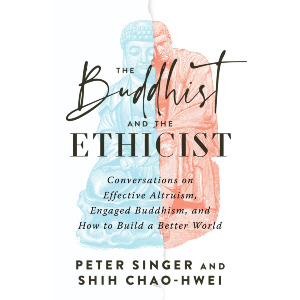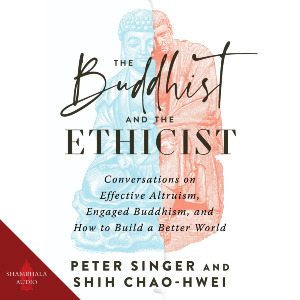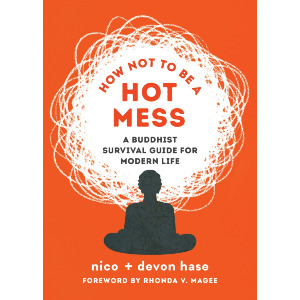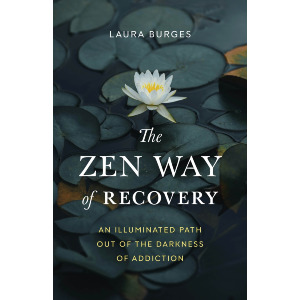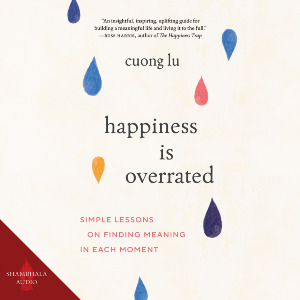The following excerpt is taken from The Wisdom of Imperfection by Rob Preece.
One of my greatest challenges as a practicing Tibetan Buddhist of some thirty years has been to reconcile two worldviews—namely, those of Buddhism and Jung. By some coincidence, I first encountered both of these at the same time, while at university. Finding that both approaches offered something very important in understanding my life, I have never felt the desire to abandon one for the sake of the other. As a consequence, I needed to find some way of bringing these views together. As my exploration of these approaches of self-actualization has unfolded, I have become increasingly aware of distinctions among what might be described as a journey, a path, and a process.
My early encounters with Jung gave me the invaluable recognition that life could be seen as a journey with phases and rites of passage that are crucial to our unfolding maturation. When I encountered the Tibetan Buddhist tradition, I found that it offered a path that could be followed—a clear and systematic method of self-transformation. When I later trained as a psychotherapist, I became increasingly aware that we are constantly passing through a psychological process, something that Jung also recognized in his explorations of alchemy.
Each of these subtle distinctions sheds a different light on our self-actualization. In Jung’s view, the journey symbolized since time immemorial in myths and legends expressed an archetypal unfolding of the individual through life: the journey of individuation. This stands in contrast to the philosophical precision and systematic method with which Buddhist practice approaches a path to the attainment of enlightenment. It is assumed that an individual following this path has already reached a certain level of development in his or her life. Again, both approaches stand in contrast to the psychotherapeutic emphasis on a process of transformation, an alchemical process that occurs in the context of therapy.
The classical Buddhist teachings, particularly in the Tibetan tradition, define a path on which experiences and insights evolve as we engage in specific practices. What is so extraordinary about the Tibetan tradition in particular is its wealth of methods, coupled with teachings that explain the nature of mind and of the reality we experience. In this respect, the Buddhist tradition offers what many of us look for: a clear and concise way to cultivate the mind and free our lives from needless confusion and suffering.
While Buddhist teachings offer a means of resolving our life issues, they have less to say about the subjective experience of that path and what its psychological effects might be. The insights or experiences we might gain emerge through a psychological process that is different for each of us. For example, in the Tibetan tradition there are instructions on how to evoke a particular tantric deity, or gain an experience of emptiness (shunyata), but seldom is there an explanation of how the individual experiences the effects of practice. This insight may be found only if one spends time with experienced meditators who are willing to speak about their own experience. Unfortunately, most Tibetans I have encountered are reluctant to speak of their own inner process. This is in part because they do not use a psychological language, but also because they seldom allow such intimate questioning.
What this dilemma brings to light is the important difference between a path and a process. We could say that a spiritual path is more structured and doctrine-centered, while its underlying psychological process is more organic and person-centered. While these two are radically different, they are intrinsically interwoven. This has led me to wonder how we might map the underlying psychological process, or indeed the journey, of someone who is practicing the Buddhist path. What kinds of problems might we encounter? And are there any common elements of that journey from which we can learn as Westerners trying to bring Buddhism into our lives?
As a psychotherapist as well as a Buddhist practitioner, I am inevitably affected greatly by these questions. Over the years, many of my clients have been Buddhists attempting to look at the integration of Buddhist principles into their lives. Part of my intention in writing this book, therefore, has been to bring together these two worlds: the Western understanding of psychological processes and Buddhist practice. One dimension of this will be to see how Buddhist insights and practice influence and enable our psychological journey. The other will be to explore how the process of psychological individuation, as described by thinkers such as C. G. Jung, is reflected in the Buddhist path.
Individuation, in Jungian terms, is essentially the process of becoming a psychological “individual” who is a separate, indivisible unity or whole. To individuate is to bring into being our innate nature and to manifest this in our life as an individual. Individuation implies becoming ever more conscious of, and fully open to, all that we are, be it good or bad, so as to become increasingly whole. This is a path that values our individual qualities and potential, along with all of our human frailty and fallibility.
Individuation as a process of self-actualization is at the heart of the path of the bodhisattva, one who dedicates his or her life to attaining buddhahood for the welfare of all sentient beings. Although not couched in these terms, what Buddhist understanding offers is a path of practice that profoundly supports this process. While Buddhism may not speak of a process of individuation as such, if we consider the Buddha’s life, it was a demonstration of exactly this. His teachings describe a path of gradual self-transformation and self-realization: the awakening of his innate true nature. Placing the bodhisattva’s path alongside the Western psychological understanding of individuation enables us to make valuable connections that inform both approaches.
Buddhism, because of its nontheistic approach to self-realization, has more in common with the psychotherapeutic world than most other spiritual traditions do. We can see this reflected in the way Buddhist principles are increasingly becoming incorporated into a more contemplative style of psychotherapy.
The spiritual-psychological journey is, however, no simple path to travel. All too often we fail to recognize our capacity for self-deception. Having been a Buddhist for many years, I am continually amazed at my own capacity, and that of some of my peers, to distort our understanding of Buddhism to suit personal inclinations. This is often done in order to maintain and justify habits and beliefs that secure a familiar sense of identity in the world. Freud said that neurosis is a kind of personal religion. We could equally well say that we collectively and individually shape our religious beliefs to affirm our neuroses. Nowhere is this tendency more evident than in religious dogmatism and fundamentalism.
In his seminal book Cutting Through Spiritual Materialism, Chögyam Trungpa began to open the eyes of Westerners to their tendency to adopt Eastern, and particularly Buddhist, practices and beliefs in a way that turned them into exotic trinkets to be collected and played with. My own teacher, Lama Thubten Yeshe, often spoke of the Western “supermarket mentality” that wants quick and easy solutions to our problems. The Western disposition to try a little of this and a little of that could create what he called “spiritual soup,” all mixed up together.
For Westerners, translating the doctrine and practices of Eastern spiritual traditions into experience is not straightforward. In my time as a member of Buddhist communities, I have seen how easily we distort and confuse the essential meaning of practice, and misinterpret basic principles of doctrine. It has also become evident how easily we place a veneer of spiritual practice and spiritual correctness over deeply unresolved personal problems. We create a kind of spiritual pathology.
Over my past eighteen years working as a psychotherapist, many Buddhist practitioners have come to see me. Most have been genuinely attempting to reconcile Western life with the Buddhist tradition. More is at issue, however, than the contradictions between Buddhist ideals and Western lifestyle. It is increasingly noticeable that the Western psyche, with its particular cultural inheritance and emotional wounding, does not always fit comfortably within an Eastern approach to spiritual practice. This is not to conclude that an Eastern tradition does not suit us, or that Western people are spiritually inept. It is true, however, that our Western upbringing does make our emotional life and sense of identity very different from what one finds in the East.
Whether we recognize it or not, in the West we live with deeply entrenched Judeo-Christian values. These permeate our culture in ways that are often very subtle. They influence our worldview, our values, and our experience of the body, sexuality, and gender. They form deeply ingrained attitudes towards good and evil, spirit and matter, and sexuality and spirituality, as well as coloring our view of reality.
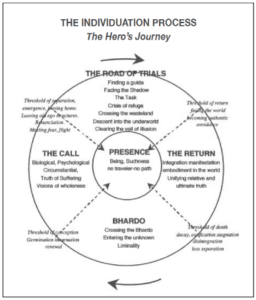
Eastern teachers from different Buddhist traditions are often surprised by the depth of emotional wounding they encounter in Westerners. It is hard for them to conceive of the pressures and stresses that impinge upon our psyches from early infancy. As a consequence, they can sometimes seem surprisingly simplistic in their responses to Westerners’ questions about their problems. Buddhism has no developmental model that addresses the unfolding of the personality and ego-identity through childhood. Consequently, it is not easy to explain in Buddhist terms the nature of the development of self-identity and how it can be damaged. Furthermore, the influence of this damage in the adult is hard to clarify and often more complex than any model to be found in the traditional teachings.
Western psychotherapy has charted the kinds of psychological damage we suffer, but we cannot assume that Eastern teachers will address these problems. It takes time for Eastern teachers even to begin to understand the kind of life we lead in the West and the nature of the pressures, insecurities, and stresses that affect us. Fortunately, some Eastern teachers take time to learn about our experience so that they can tailor their guidance to Western needs rather than simply following doctrine.
Many Westerners explore spiritual traditions because they seek a solution to their psychological malaise. However, it is evident from my work as a psychotherapist that these “spiritual” solutions do not always address the root cause. Many people on the “spiritual” path have more of a problem with their basic identity in the world than they do with their relationship to the divine. Unfortunately, spiritual organizations often attract distressed people seeking spiritual solutions that do not necessarily address their core suffering. It can take a sophisticated insight to understand the nature of our emotional wounding and the patterns and defenses that crystallize around it. Perhaps, therefore, it is unwise to assume that a spiritual practice will automatically resolve these deep psychological issues.
In my search for a resolution to these dilemmas, I have learned a great deal from my own process and that of my psychotherapy clients. Moreover, certain themes have emerged that I feel must be looked at more deeply. When we examine our personal pathology more closely, we may discover a way to become liberated from it. If we fail to do so, these unaddressed issues may color our spirituality and distort our understanding. Ultimately, nothing is gained by blindness and unconscious self-deception, but we often fail to see these weaknesses in ourselves.
The Shadow—to use the name that Jung gave to our blind spots—is notoriously elusive. It feeds on our denial and lack of awareness. In this book, I wish to explore some of these blind spots—not to provide solutions, but to help us to see the potential pitfalls in our path. Much of what I am introducing is from my own, often painful, experiences. My own spiritual path has seldom been filled with glorious realizations, visions, and magical insights. Perhaps one could see the recognition of my blindness and mistakes as a kind of insight. I hope that is so, but it never feels as exotic as the profound realizations described in the teachings.
We need a deep-rooted compassion for ourselves in order to allow for our fallibility and vulnerability on the path. There is little point in trying to base our lives on unreal ideals that only cripple us. My experience has led me to conclude that a fundamental aspect of the journey is the uncovering of our personal spiritual pathology and its gradual resolution. At each stage in the path, new aspects of pathology may emerge, and their resolution will enable us to move forward. Our willingness to learn and grow from this process is perhaps one of the most extraordinary qualities of our human nature. Considerable wisdom comes from our state of imperfection.
In what follows, I have tried to draw on the insights of both Buddhist and Western psychology to explore what can be seen as the process of individuation of Buddhist practitioners in the West. In particular, I am grateful for the insights of my teachers Lama Thubten Yeshe and Thubten Zopa Rinpoche, and for the ideas of C.G. Jung. Most of all, however, I owe a debt to the invaluable experience of the many people I have seen over the years in therapy and to those with whom I have worked in workshops and retreats.


